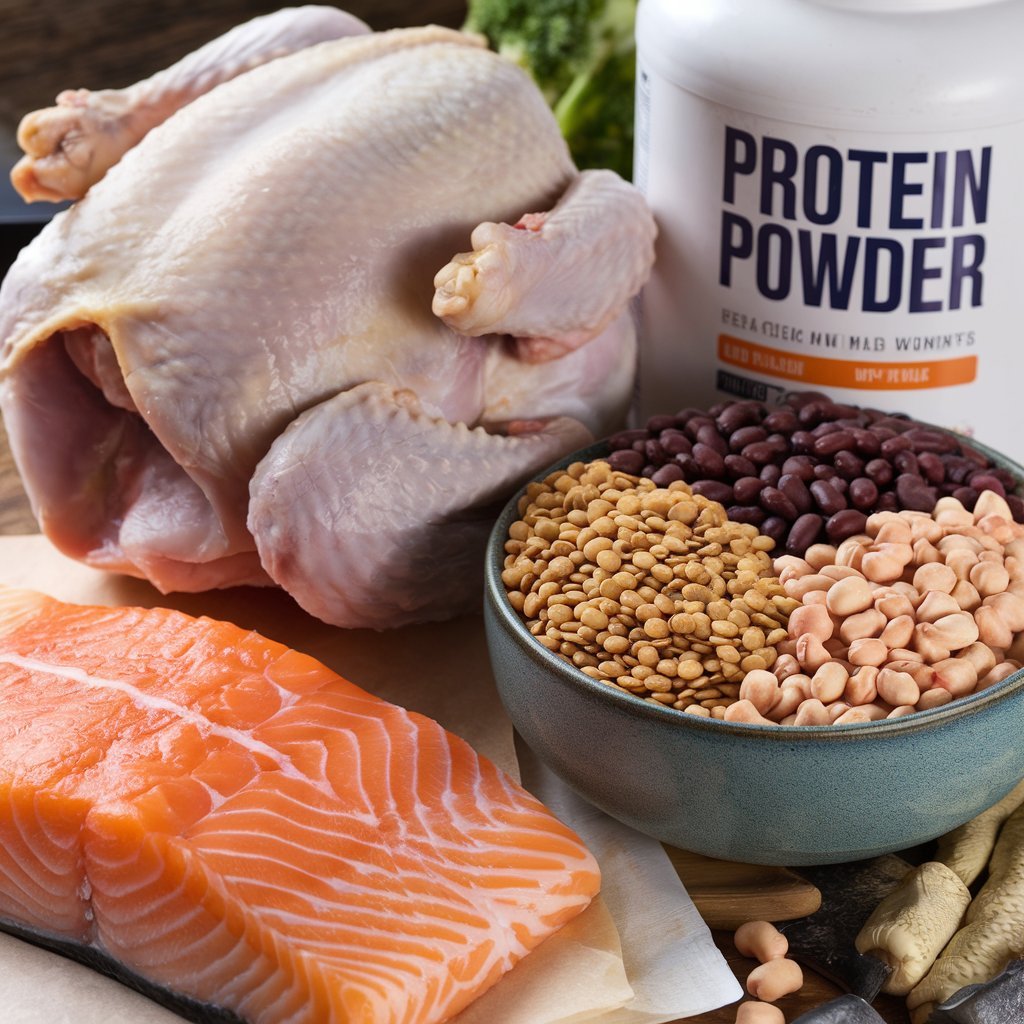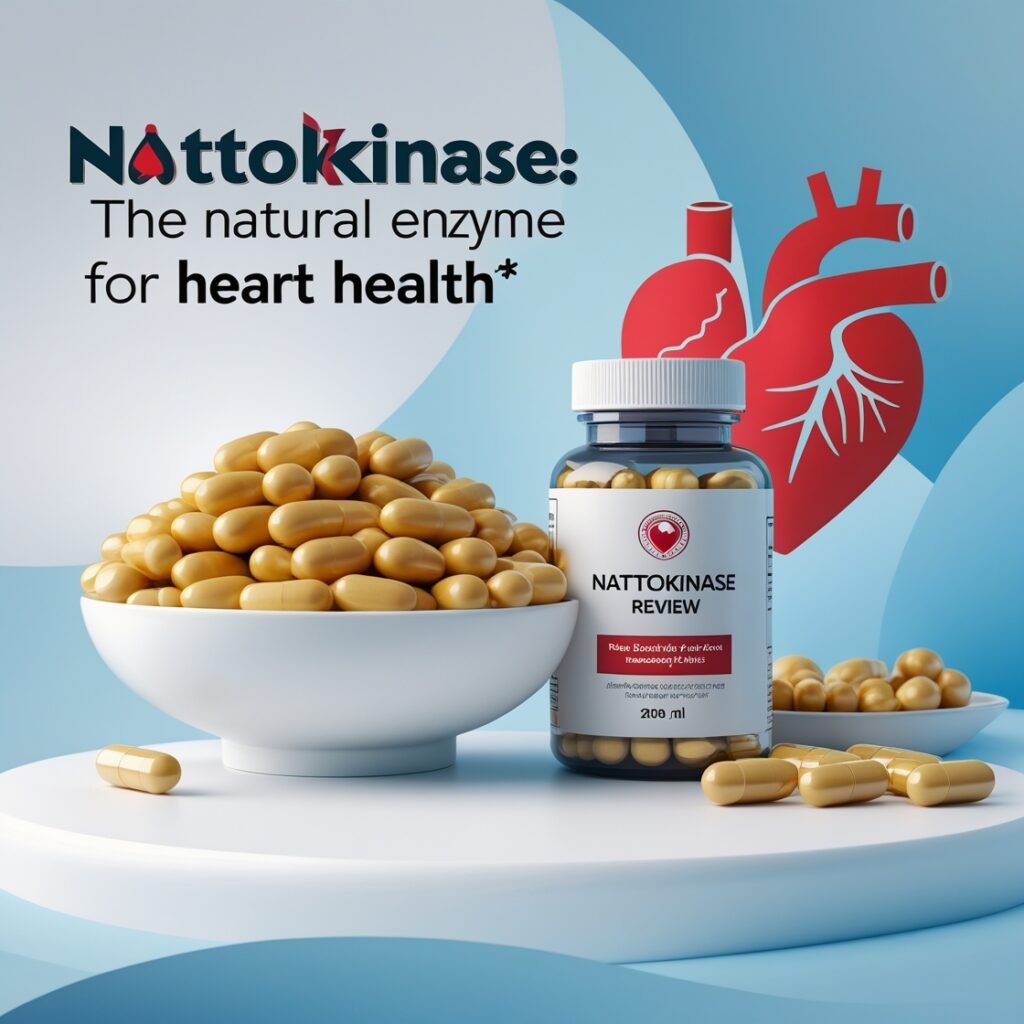Introduction to Protein for Muscle Growth
In the quest for building muscle, one question often arises: how crucial is protein? If you’ve ever found yourself wondering about the role of protein for muscle growth, you’re not alone. For many fitness enthusiasts and athletes, understanding the role of protein for muscle growth is essential. Protein is not just a macronutrient; it’s the foundation of muscle repair and growth.
In this blog post, we’ll delve into the science behind protein’s role in muscle growth, explore the best sources of protein for your diet, and provide practical tips on how to optimize your intake for maximum results. Whether you’re a seasoned athlete or just starting your fitness journey, understanding these principles will empower you to make informed decisions about your nutrition and training regimen. So, let’s embark on this journey together and unlock the secrets to harnessing protein for muscle growth!
Table of Contents
Protein for Muscle Growth
Understanding Protein for Muscle Growth
When it comes to building muscle, protein is often hailed as the superstar nutrient. But what exactly makes it so vital? Let’s break it down.
The Role of Protein in the Body
Protein plays a crucial role in nearly every bodily function. It’s not just about muscle; it’s involved in:
- Building and repairing tissues: Every time you work out, you create tiny tears in your muscle fibers. Protein helps repair these tears, leading to muscle growth.
- Producing enzymes and hormones: Many hormones, including insulin and growth hormone, are proteins that regulate various bodily functions.
- Supporting immune function: Proteins are essential for creating antibodies that help fight off infections.
Types of Proteins: Complete vs. Incomplete
Understanding the different types of proteins can help you make better dietary choices. Proteins are categorized as:
- Complete Proteins: These contain all nine essential amino acids that your body cannot produce on its own. Sources include:
- Animal products (meat, fish, dairy)
- Quinoa and soy
- Incomplete Proteins: These lack one or more essential amino acids. Common sources include:
- Most plant-based proteins (beans, lentils, nuts)
- Combining different plant proteins can create a complete amino acid profile (e.g., rice and beans).
Essential Amino Acids: The Building Blocks of Muscle
Amino acids are the building blocks of protein, and among them, there are nine that are considered essential. These must be obtained through your diet. Why are they so important for muscle growth?
- Leucine: Often referred to as the “trigger” for muscle protein synthesis, leucine plays a pivotal role in stimulating MPS.
- Isoleucine and Valine: These branched-chain amino acids (BCAAs) also contribute to energy production during workouts.
The Process of Muscle Protein Synthesis (MPS)
So how does this all come together? When you consume protein, your body breaks it down into amino acids. These amino acids then enter the bloodstream and are used to repair and build new muscle tissue. This process is known as muscle protein synthesis.
To maximize MPS, consider these factors:
- Consistent Protein Intake: Aim for a steady supply of protein throughout the day rather than loading up at one meal.
- Post-Workout Nutrition: Consuming protein after your workout can significantly enhance recovery and muscle growth.
Conclusion: The Bottom Line on Protein
Understanding the role of protein for muscle growth is essential for anyone looking to enhance their fitness journey. By focusing on high-quality protein sources—both animal and plant-based—you can ensure your body has the necessary tools to repair and build muscle effectively.
Incorporating a variety of complete proteins into your diet, paying attention to your amino acid intake, and timing your protein consumption wisely will set you on the path to achieving your muscle growth goals. Remember, every bite counts!
Optimal Protein for Muscle Growth
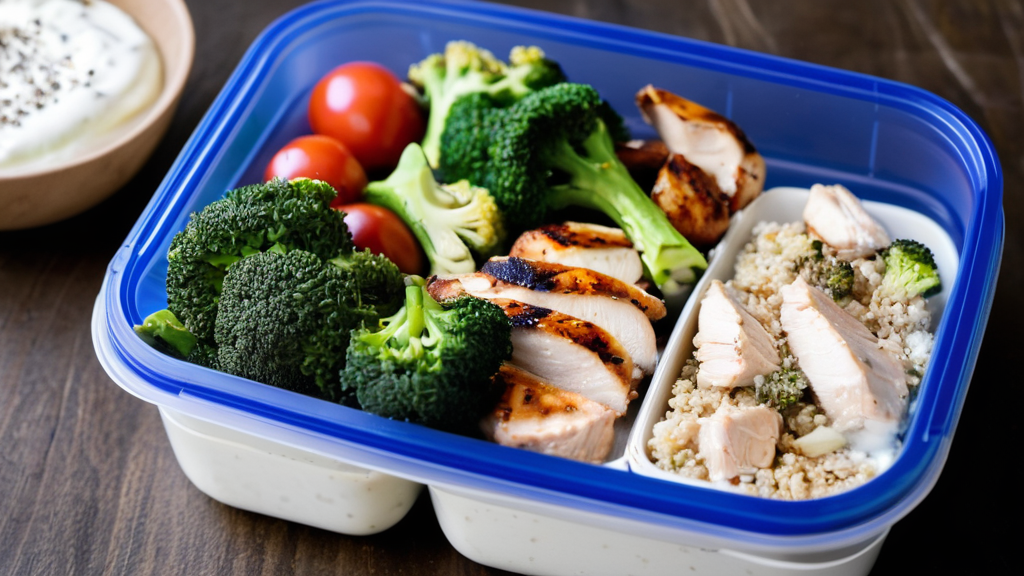
When it comes to maximizing muscle growth, understanding your protein intake is key. But how much protein do you really need? And how can you ensure you’re getting the most out of it? Let’s explore these questions together.
Recommended Daily Protein Intake
The amount of protein you need can vary based on several factors, including your age, weight, activity level, and fitness goals. Here’s a general guideline to help you determine your optimal protein intake:
- General Recommendation: For most individuals looking to build muscle, aim for 1.6 to 2.2 grams of protein per kilogram of body weight. This translates to about 0.73 to 1 gram per pound.
- Athletes and Bodybuilders: If you’re heavily involved in resistance training or endurance sports, you might benefit from the higher end of this range.
- Sedentary Individuals: If you’re not particularly active, your protein needs may be lower—around 0.8 grams per kilogram of body weight.
Factors Influencing Protein Needs
Several factors can influence how much protein is right for you:
- Activity Level: The more active you are, the more protein your body requires to repair and build muscle.
- Age: As we age, our bodies become less efficient at using protein for muscle synthesis, which may necessitate higher intake levels.
- Body Composition Goals: If you’re aiming to lose fat while maintaining muscle mass, increasing your protein intake can be beneficial.
Timing Your Protein Intake
It’s not just about how much protein you consume; timing also plays a crucial role in muscle growth. Consider these strategies:
- Pre-Workout Protein: Consuming a protein-rich meal or snack about 30 minutes to an hour before your workout can provide your muscles with the necessary amino acids during exercise.
- Post-Workout Recovery: Aim to consume protein within 30 minutes to two hours after your workout. This is when your muscles are primed for recovery and growth. A good target is around 20 to 30 grams of high-quality protein.
- Even Distribution Throughout the Day: Instead of loading up on protein at one meal, try to distribute your intake evenly across meals. This approach can enhance muscle protein synthesis throughout the day.
Practical Tips for Meeting Your Protein Goals
Now that you know how much and when to consume protein, here are some practical tips to help you meet your daily goals:
- Incorporate Protein-Rich Foods in Every Meal: Include sources like chicken, fish, eggs, legumes, and dairy in each meal.
- Snack Smart: Opt for high-protein snacks such as Greek yogurt, cottage cheese, or a handful of nuts between meals.
- Consider Protein Supplements: If you’re struggling to meet your needs through food alone, high-quality protein powders (like whey or plant-based options) can be a convenient solution.
Conclusion: Finding Your Balance
Finding the optimal protein for muscle growth is a personal journey that involves understanding your unique needs and lifestyle. By following general guidelines while considering individual factors and timing your intake wisely, you can set yourself up for success on your fitness journey.
Remember, achieving your muscle growth goals isn’t just about hitting a number; it’s about creating sustainable habits that support your overall health and well-being. So go ahead—fuel your body with the right amount of protein and watch those gains come to life!
Best Sources of Protein for Muscle Growth
When it comes to building muscle, the quality of your protein sources matters just as much as the quantity. But with so many options available, how do you know which proteins are best for your goals? Let’s dive into the top sources of protein that can help you maximize muscle growth and recovery.
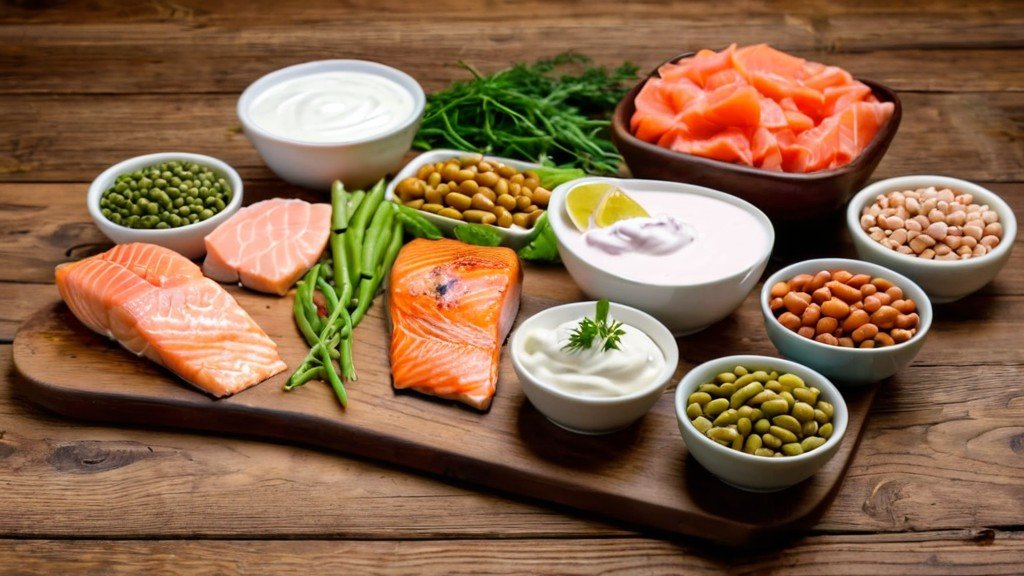
Animal-Based Protein Sources
Animal-based proteins are often considered complete proteins because they contain all nine essential amino acids. Here are some of the best options:
- Lean Meats:
- Chicken Breast: A staple for many athletes, chicken breast is low in fat and high in protein, providing about 31 grams of protein per 100 grams.
- Turkey: Similar to chicken, turkey is another lean option that’s rich in protein and versatile for various dishes.
- Fish:
- Salmon: Not only is salmon packed with protein (about 25 grams per 100 grams), but it’s also rich in omega-3 fatty acids, which can aid in recovery.
- Tuna: A convenient option, canned tuna offers around 30 grams of protein per 100 grams, making it perfect for quick meals.
- Dairy Products:
- Greek Yogurt: This creamy delight packs about 10 grams of protein per 100 grams and is great for snacks or smoothies.
- Cottage Cheese: With approximately 11 grams of protein per 100 grams, cottage cheese is an excellent choice for post-workout recovery.
Plant-Based Protein Sources
If you’re following a vegetarian or vegan diet, there are plenty of plant-based proteins that can support your muscle-building efforts:
- Legumes:
- Lentils: Packed with about 9 grams of protein per cooked half-cup, lentils are a fantastic source of both protein and fiber.
- Chickpeas: These versatile legumes provide around 7 grams of protein per cooked half-cup and can be used in salads, stews, or made into hummus.
- Nuts and Seeds:
- Almonds: With about 21 grams of protein per 100 grams, almonds also offer healthy fats and fiber.
- Chia Seeds: These tiny seeds pack a punch with around 17 grams of protein per 100 grams, plus they’re rich in omega-3 fatty acids.
- Whole Grains:
- Quinoa: Often referred to as a superfood, quinoa contains about 8 grams of protein per cooked cup and is one of the few plant foods considered a complete protein.
- Brown Rice and Beans: This classic combination provides a complementary amino acid profile, making it an excellent choice for vegetarians.
Combining Proteins for Maximum Benefit
For those who primarily consume plant-based diets, combining different sources can ensure you get all essential amino acids. Here are some effective combinations:
- Rice and Beans: Together, they create a complete amino acid profile while providing fiber and other nutrients.
- Peanut Butter on Whole Grain Bread: This delicious snack not only satisfies your hunger but also boosts your protein intake effectively.
Conclusion: Choose Wisely for Optimal Gains
Selecting the right sources of protein is crucial for muscle building and overall health. By incorporating a mix of high-quality animal-based and plant-based proteins into your diet, you can ensure that your body receives the nutrients it needs to repair and grow muscle effectively.
Remember to listen to your body and adjust your intake based on your activity level and fitness goals. With the right approach to nutrition, you’ll be well on your way to achieving impressive muscle gains! So go ahead—explore these protein sources and find what works best for you!
The Role of Supplements in Muscle Growth
When it comes to building muscle, many of us wonder: are supplements really necessary? With a plethora of options available, from protein powders to creatine, it can be overwhelming to navigate the world of dietary supplements. Let’s break down the role of supplements in muscle growth and determine whether they can truly enhance your fitness journey.
Understanding Protein Supplements
One of the most popular types of supplements on the market is protein powder. But why do so many people rely on it? Here’s what you need to know:
- Convenience: Protein powders offer a quick and easy way to increase your protein intake, especially after workouts when your muscles are primed for recovery.
- Variety: There are several types of protein powders available, including:
- Whey Protein: Derived from milk, whey is quickly absorbed and perfect for post-workout recovery. It contains all essential amino acids and is particularly high in leucine, which stimulates muscle protein synthesis.
- Casein Protein: Also milk-derived, casein digests slowly, providing a steady release of amino acids. This makes it an excellent option before bedtime.
- Plant-Based Proteins: Options like pea, hemp, and brown rice protein cater to vegans and those with lactose intolerance. While some may lack certain amino acids, combining different plant proteins can create a complete profile.
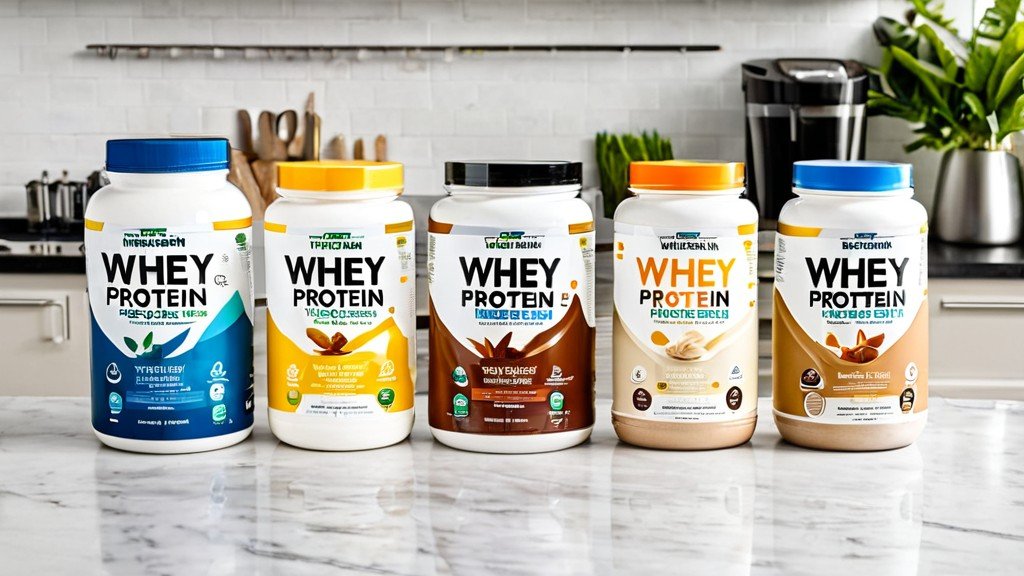
Other Popular Supplements for Muscle Growth
While protein supplements are essential, several other products can support muscle growth effectively:
- Creatine:
- Creatine is one of the most researched supplements in sports nutrition. It helps increase strength and power during high-intensity workouts by replenishing ATP (adenosine triphosphate), your muscles’ primary energy source.
- Studies show that creatine can enhance muscle mass when combined with resistance training.
- Branched-Chain Amino Acids (BCAAs):
- BCAAs consist of three essential amino acids—leucine, isoleucine, and valine—that play a significant role in muscle recovery and reducing soreness.
- Taking BCAAs before or during workouts may help decrease muscle breakdown and enhance recovery.
- Beta-Alanine:
- This amino acid helps buffer acid in your muscles during high-intensity exercise, potentially improving endurance and reducing fatigue.
- If you often find yourself struggling with prolonged workouts, beta-alanine might be worth considering.
When to Use Supplements
While supplements can be beneficial, they should complement a well-rounded diet rather than replace whole foods. Here are some tips on when to incorporate them:
- Post-Workout Recovery: Consuming a protein shake or BCAAs after your workout can help kickstart recovery when your muscles need nutrients the most.
- Busy Days: If you’re short on time or struggling to meet your protein goals through food alone, a protein supplement can fill the gap.
- Specific Goals: If you’re aiming for significant muscle gains or pushing your limits in training, certain supplements like creatine or beta-alanine may provide an extra edge.
Conclusion: Choose Wisely
Supplemental protein for muscle growth and recovery should used wisely. However, it’s essential to remember that no supplement can replace a balanced diet rich in whole foods. Focus on getting most of your nutrients from natural sources first, and then consider supplements as a strategic addition to support your fitness goals.
Ultimately, the key is to listen to your body and find what works best for you. With the right combination of nutrition and supplementation, you’ll be well on your way to achieving impressive results in your muscle-building journey!
Conclusion: Protein for Muscle Growth
As we wrap up our exploration of protein and its pivotal role in muscle growth, it’s clear that understanding how to optimize your protein intake can significantly impact your fitness journey. So, how can you ensure you’re getting the most out of this essential nutrient? Let’s summarize the key takeaways and actionable steps you can implement right away.
Key Takeaways for Muscle Growth
- Prioritize Quality Protein Sources: Whether you prefer animal-based or plant-based options, focus on high-quality proteins that provide all essential amino acids. Incorporate a variety of sources like lean meats, fish, dairy, legumes, and nuts to meet your needs.
- Calculate Your Protein Needs: Aim for 1.6 to 2.2 grams of protein per kilogram of body weight if you’re actively working on building muscle. Adjust based on your activity level and fitness goals.
- Timing Matters: Don’t underestimate the importance of when you consume protein. Aim to include protein in every meal and snack, with particular attention to post-workout recovery. Consuming protein within 30 minutes to two hours after exercising can enhance muscle repair and growth.
- Consider Supplements Wisely: While whole foods should be your primary source of protein, supplements like whey protein, creatine, and BCAAs can be beneficial when used strategically—especially if you struggle to meet your protein goals through diet alone.
Actionable Steps to Implement
- Plan Your Meals: Create a weekly meal plan that includes a variety of protein sources. This not only helps you stay on track but also keeps your meals interesting.
- Keep Snacks Handy: Stock up on high-protein snacks like Greek yogurt, nuts, or protein bars for those busy days when you need a quick boost.
- Monitor Your Progress: Keep track of your protein intake and muscle growth over time. Adjust your diet as needed based on your results and how your body feels.
Embrace the Journey
Remember, building muscle is a journey that requires patience and consistency. By prioritizing protein in your diet and making informed choices about your nutrition, you’re setting yourself up for success.
So, ask yourself: Are you ready to take charge of your muscle-building journey? With the right approach to protein intake, you can maximize your gains and achieve your fitness goals. Here’s to fueling your body with the nutrients it needs to thrive—let’s get started!
References
- Journal of Cachexia, Sarcopenia and Muscle, 2022: https://pubmed.ncbi.nlm.nih.gov/35187864/ .
- Whey Protein Supplementation: https://www.dovepress.com/whey-protein-supplementation-and-muscle-mass-current-perspectives-peer-reviewed-fulltext-article-NDS
- Dietary Protein and Muscle Mass: https://pmc.ncbi.nlm.nih.gov/articles/PMC6566799/
- Dose-Response Relationship: https://academic.oup.com/nutritionreviews/article/79/1/66/5936522?login=false
- Protein Needs for Muscle Building: https://www.medicalnewstoday.com/articles/how-much-protein-do-you-need-to-build-muscle


